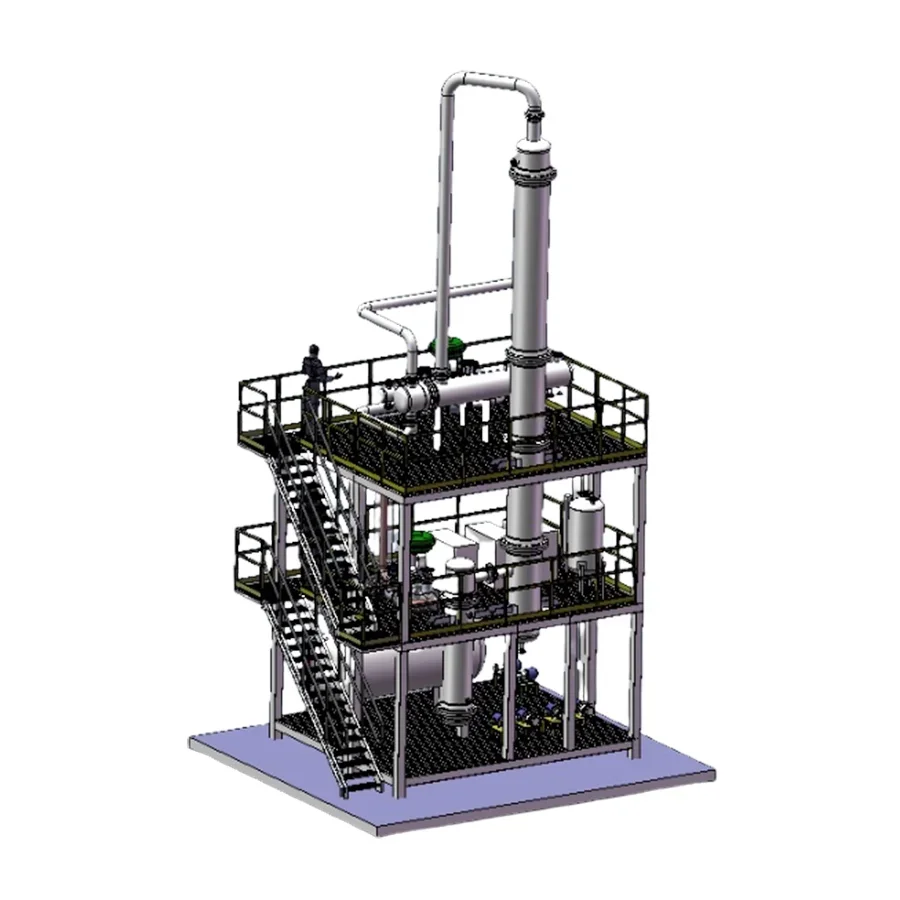Separation engineering is a critical field within chemical engineering, focusing on the techniques and processes used to separate mixtures into their individual components. This guide will explore the fundamental principles of separation engineering units, their classifications, applications, and the latest innovations shaping the industry.
What are Separation Engineering Units?
Separation engineering units are specialized systems designed to achieve the separation of different substances from a mixture. These units are essential in various industries, including petrochemicals, pharmaceuticals, food processing, and environmental management. The primary goal of these units is to isolate specific components for further processing or to achieve desired product purity.

Types of Separation Processes
Separation processes can be broadly classified into several categories based on the mechanisms employed:
Distillation: A thermal separation process that relies on differences in boiling points to separate components. It is extensively used in refining crude oil and producing alcoholic beverages.
Absorption: This process involves transferring a component from a gas phase to a liquid phase. It is commonly used in gas purification and scrubbing applications.
Extraction: Involves separating a substance from a mixture based on its solubility in different solvents. This technique is widely applied in pharmaceuticals and food industries.
Membrane Separation: Utilizes selective permeability of membranes to separate components based on size or chemical properties. It is increasingly used in water treatment and gas separation.
Fundamental Principles of Separation Engineering
Understanding the fundamentals of separation processes requires knowledge of several key principles:
Mass Transfer: The movement of mass from one phase to another is central to all separation processes. This includes diffusion, convection, and the interaction between phases.
Thermodynamics: The principles governing energy changes during separation processes are crucial for designing efficient systems. Concepts such as phase equilibria and chemical potential play significant roles.
Fluid Mechanics: The behavior of fluids within separation units affects efficiency and design. Understanding fluid dynamics helps optimize flow patterns and minimize pressure drops.

Designing Separation Units
The design of separation units involves multiple considerations:
Material Selection: Choosing appropriate materials that can withstand operational conditions (temperature, pressure, corrosiveness) is vital for longevity and safety.
Process Simulation: Advanced software tools allow engineers to model and simulate separation processes, enabling optimization before physical implementation.
Scale-Up Considerations: Transitioning from laboratory-scale experiments to industrial-scale production requires careful planning to maintain efficiency while managing costs.
Applications of Separation Engineering Units
Separation engineering units find applications across various sectors:
Petrochemical Industry: Distillation columns are essential for refining crude oil into gasoline, diesel, and other valuable products.
Pharmaceuticals: Extraction and chromatography techniques are used for purifying active pharmaceutical ingredients (APIs).
Food Processing: Techniques such as membrane filtration help in producing concentrated juices and dairy products while preserving quality.

Challenges in Separation Engineering
Despite advancements, several challenges persist in the field:
Energy Efficiency: Many traditional separation processes are energy-intensive. Innovations focusing on reducing energy consumption are critical for sustainability.
Environmental Impact: Waste generation during separation processes can lead to environmental concerns. Developing greener technologies is increasingly important.
Process Integration: Achieving seamless integration between different unit operations remains a complex challenge that requires innovative solutions.
Innovations Shaping the Future
The field of separation engineering is rapidly evolving with new technologies:
Membrane Technologies: Innovations in membrane materials have improved selectivity and permeability, making them more effective for various applications.
Hybrid Processes: Combining different separation techniques can enhance efficiency and reduce costs. For example, integrating distillation with membrane technology offers promising results.
Smart Process Control: Use intelligent control systems to optimize operating parameters in real time and improve overall efficiency.

Conclusion
Understanding the fundamentals of separation engineering units is crucial for professionals in chemical engineering. As industries face increasing demands for efficiency and sustainability, mastering these principles will enable engineers to innovate and improve existing processes. The ongoing advancements in technology will continue to shape the future of separation engineering, making it an exciting field with vast potential for growth and development.
By grasping these concepts, engineers can contribute significantly to creating efficient, environmentally friendly solutions that meet the challenges of modern industrial processes.
The Advantages of Separation Engineering Units in Chemical Engineering


